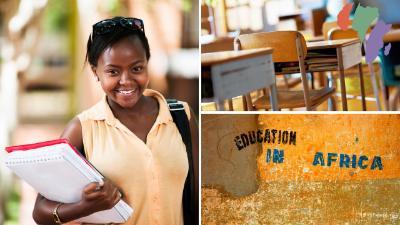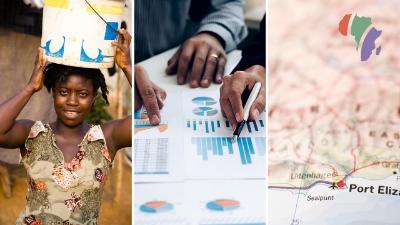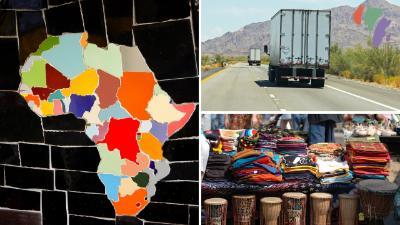Research
In addition to ongoing legacy projects, the ISER research focus areas include:
- THE USE AND MANAGEMENT OF ENVIRONMENTAL RESOURCES
a. Land use and management reform
This focus area looks at issues in South Africa’s land redistribution programme and examines the challenges faced by projects aimed at introducing emerging Black farmers into the commercial space. These include the challenges of finding markets, accessing finance, skills and marketing skills issues, the effects of digital and online platforms on farm unit productivity levels in South Africa. Innovations from the rest of Africa are also studied for cross learning purposes and improvements.
-400x225.jpg)
b.Water use and management reform
The research focus on water resources management is a collaborative one with the Institute of Water Research (IWR) and the Environmental Learning Research Centre (ELRC) at Rhodes University. Research areas include Integrated Water Resources Management (IWRM). This research is area is relevant to certain land reform issues, for example the use of water in irrigated agriculture. We address the challenges of including emerging Black farmers into the management platforms of environmental water at catchment levels. The ISER further has a research relationship with the Water Research Commission (WRC) and the broader water research community to explore and develop innovative methods and tools to more accurately quantify the benefits to communities and businesses of water resources and other natural ecosystem services.
Projects and associated events
Rhodes ISER, ELRC and the WRC to develop participatory course strengthening co-learning in water security networks
The Water Research Commission (WRC) is leading a component of the GEF6 Ecological Infrastructure for Water Security Project (EI4WS) focused on developing strategies to support social learning, knowledge mediation and management for deepening capacities in existing organisations and networks to address issues in the water and biodiversity sectors. As part of this, WRC has commissioned Rhodes University through the Institute of Social and Economic Research (ISER) in partnership with the Environmental Learning and Research Centre (ELRC) to develop a participatory course as one of the mediating tools for strengthening co-learning in EI4WS networks and community of practice. Working with the ELRC and other partners, the ISER will develop, pilot and provide continued support in order to scale the participatory course aimed at activating learning networks in the Berg-Breede and uMngeni River catchments. This project is grounded in the transformative social learning methodology to facilitate co-inquiry processes throughout the project.
For more information click on link below:
WRC EI4WS participatory course
2.EDUCATION AND SKILLS DEVELOPMENT
The ISER has informal research partnerships with organisations including the Human Sciences Research Council (HSRC) to study education issues and linkages to learner transition into employment in the formal and informal sectors. A particular area of interest is the development of technical skills and the training of artisans for formal and informal employment including self-employment. This work is linked to some of the issues raised in the HSRC’s Labour Markets Intelligence Project (LMIP)http://lmip.org.za/

3. ECONOMIC DEVELOPMENT ISSUES
This area of research includes economic analyses of the use of public finances in South Africa through various fiscal policies. Using a multidisciplinary approach that includes history, political studies and geography, the ISER research will examine the developmental pathways of local municipalities, incorporating government involvement in setting pace to development; growth of municipalities; and levels of accountability to citizens.

4.INTERNATIONAL TRADE IN GOODS AND SERVICES
The ISER encourages and reviews applications for supporting postgraduate students who need supervision in the area of African cross-border trade research.
Recently, the Continental African Free Trade Area (CAFTA) agreement was signed by most African countries and the tools to assist its implementation are poised for collective development. The ISER encourages postgraduate students to conduct research for Masters or PhD programmes in research exploring the challenges of implementing the CAFTA, as well as the various possible developmental scenarios for Africa, both at a continental and country level.

Last Modified: Thu, 22 Aug 2024 10:19:37 SAST
